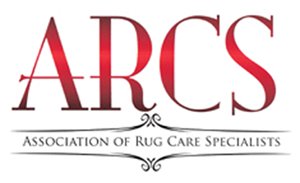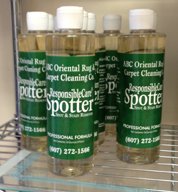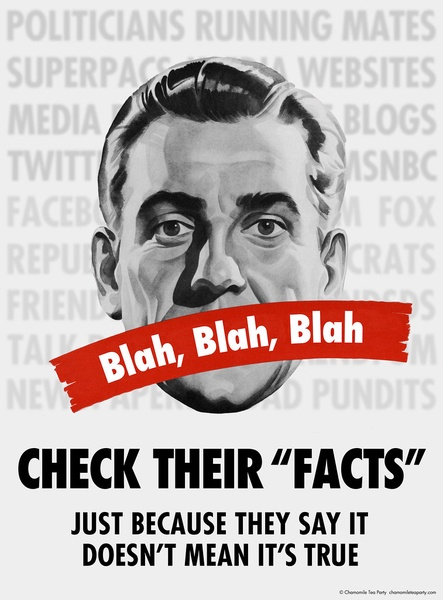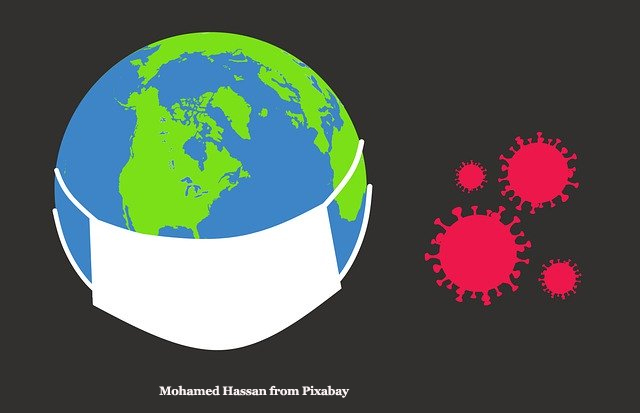CHERRY PICKING DATA
CHERRY PICKING DATA & COVID-19
October 2020
Cherry picking data is the act of selecting evidence or research that supports a certain position, often a controversial one, while completely ignoring relevant evidence to the contrary. It does not necessarily mean that one side’s information is incorrect, but that a complete picture is not being presented because available evidence to support the other side is not being taken into account.
The problem with the act of cherry picking data is that when all available information is not taken into account, the ‘cherry picked’ information can be presented in a misleading way. This may lead those who are not aware of this process to make decisions based on the cherry-picked data only. In the case of COVID-19, there can be serious repercussions. Those who engage in cherry picking data can do so intentionally or unintentionally.
INTENTIONAL & UNINTENTIONAL CHERRY PICKING DATA
Intentional Cherry Picking Data
Intentional cherry picking data, by purposely omitting available evidence, is often done to make arguments more persuasive helping to support a particular position. There is a risk here if people discover the omission of evidence, but it works well where there is a low likelihood that anyone will discover the cherry picking data or even care about it.
An example of intentional cherry picking data is when a person or organization mentions only a small number of studies out of all studies published on a certain topic, in order to make it look as if the scientific consensus matches theirs.
Unintentional Cherry Picking Data
Unintentional cherry picking data is an example of one way people process information in order to make decisions. People who engage in unintentional cherry picking data tend to process information in a way which confirms the beliefs they already have. When people feel they are right and encounter new or remember old information, they tend to focus on information which confirms their beliefs, and ignore information which contradicts them. People do this even when they are aware of cherry picking data and understand the issues associated with it.
Those who unintentionally cherry pick data find it easier to do so than to process all the available information. It is much easier to pick out a few bits of information from an overwhelming mass of information and base your position on them rather than to carefully analyze all the available information.
EXAMPLES OF
CHERRY PICKING DATA
IN POLITICS
Cherry picking data happens all the time in politics. For example, in June, 2020, President Trump claimed that the US was doing well in the battle against COVID-19 because the death rate from the disease was declining. This statement totally ignored the information that new records were being set every day for people testing positive for the SARS-CoV-2 virus.
What we have here is a typical case of 'cherry-picking' of data. It isn’t that Trump’s information is incorrect, it just doesn’t present a complete picture of the situation. And politicians are not the only ones guilty of this type of data reporting. Environmentalists, industry representatives, activists of all sorts, and government officials are all in on the cherry picking harvest!
As we head closer to the 2020 election, one only has to watch the messages from those running for office to see how this fallacy of logic, cherry picking data, works. Examples of this are often found in political arguments and debates when a few specific quotes someone said are cherry-picked out and then repeated out of context in order to misrepresent what that person actually intended to say.
IN THE MEDIA
Cherry picking data by the media is most evident when disproportional coverage is given to one side of a story while ignoring facts that could support alternative viewpoints.
Although a certain position may be wrong and it might be reasonable to either point this out or oppose it directly, often the rest of the evidence may be less exciting and some less reputable media might prefer to cherry pick the data even if it is inaccurate. This inaccurate data will also usually be more persuasive than the accurate one.
In regard to COVID-19 and other scientific information, cherry picking data is often used in the media by denialists, who disagree with the scientific consensus on various topics, in an attempt to support their own point of view.
IN SCIENTIFIC RESEARCH
There is no lack of controversies in scientific research. Concerns over the safety of plastic components, cosmetic ingredients, medications, pesticides, genetically modified organisms, cell phones, microwave ovens, drinking water, climate science, and the wearing of masks are very controversial subjects. When people search for guidance on how to tackle these issues, they look for dispassionate, unbiased answers. This is what scientific research should be able to deliver.
But dispassionate, unbiased answers from scientists would exist only in a Utopian world. They would have no preconceived biases, would not be driven by monetary gain, would have access to plentiful funding from unbiased sources, and would have their egos safely tucked away. Unfortunately, in the real world, the sheer volume of scientific research is mind-boggling. Contradictory finds happen, even in the absence of any bias. Thousands of peer-reviewed research papers are published every week and not all are of equal quality. As a result of all this, scientific publications can be found to support almost any point of view.
Examples of Scientific Controversies
- Was the use of the pesticide DDT responsible for an increase in breast cancer on Long Island in New York? There is certainly enough peer-reviewed publications to back up this claim. But what about the seven-year-long federally funded study that showed no such effect?
- Studies can be found linking bisphenol A with developmental problems in rodents but there are plenty of studies absolving the chemical of blame.
- Some studies show antioxidant supplements to be effective in warding off disease but are found useless in others.
This does not mean that any of the studies are wrong. It highlights the difficulty of obtaining conclusive results when many variables are involved. This is the nature of science. But, unfortunately, when data are presented selectively to support an agenda, especially when the stakes are high, the public ends up being misled.
How Does This Happen?
It doesn’t take much for a public-spirited group to claim (with supporting studies) that one chemical or another in our environment is wreaking havoc with our health. Industry will then respond by trotting out contradictory studies.
Each side will enlist reputable scientists to further their cause. The concern here is that these scientists may be hired directly by the organizations involved, may have connections through sponsored research or they may just support a certain view out of conviction since some of the above-mentioned scenarios represent a vested interest, not an objective opinion based on complete data. Much too often, the response to an unfavorable study is an attempt to discredit the research by searching for methodological flaws, instead of scrutinizing the work objectively.
With current cutbacks in government-sponsored research, scientists are increasingly looking to industry for grants. On occasion, even independent researchers may be so convinced of the merits of their pet view that they become self-delusional and ignore any contrary evidence.
SCIENTIFIC CONTROVERSIES & CHERRY PICKING THE DATA ON COVID-19
Pulling out a sound scientific conclusion from the overwhelming amount of information on COVID-19 available today is a truly daunting task. It requires detachment from any vested interest, expertise in evaluating the quality of studies, and recognition of the fact that experimental result can be misinterpreted or purposely twisted.
This is our current situation for COVID-19 researchers and the public. Questions about hydroxychloroquine, intravenous vitamin C, airborne transmission, the efficacy of disinfects, or just hugging grandchildren, one can find studies to back up any view. It is very difficult to come to any conclusions, with the possible exception of noting that life is not a bowl of cherries!
HOW TO RECOGNIZE & RESPOND TO CHERRY PICKING DATA
There are 2 main ways to respond:
- Call out the presenter by showing that crucial information is being ignored and should be taken into account. CAVEAT: The person may be cherry picking data unintentionally. It would be wiser to ask the other person why they have left out crucial information, rather than attack them outright. It is always possible they were not aware of the additional information. This action may make the other person more willing to listen.
- Present the omitted information for consideration. In this case, the presenters will be put in a defensive position needing to justify why they omitted critical information.
HOW TO AVOID
CHERRY PICKING DATA
Because people can engage in cherry picking data unintentionally, especially when they wish to confirm their preexisting beliefs, this could mean that it is possible for any of us to engage in cherry picking data, even when we don’t mean to.
One way to avoid this is to slow down our reasoning process and avoid forming a conclusion too early until we have had a chance to look at all the relevant information which is available to us.
Note: Some of the information contained in this article was used by permission from the McGill Office for Science and Society.
"The Cleanest Clean You've Ever Seen."
by
ABC Oriental Rug & Carpet Cleaning Co.
130 Cecil Malone Drive Ithaca, NY 14850
607-272-1566

ABC Oriental Rug & Carpet Cleaning Co.
is a FOUNDING MEMBER of the
Association
of Rug Care Specialists.
"To Teach, Cultivate and Advance the Art and Science
of Rug Care"
ABC Oriental Rug is on Facebook!
We regularly post tips and information about your carpet, rugs, upholstery, and tile and grout so please visit us often.
We update our Facebook page with our latest discounts and we are also offering exclusive promotions to our Facebook fans. These are limited and short notice promotions.
When you like our page, you will also be able to claim your special gift from us!
"Like Us"
on Facebook
and find out
what's going on!
Did you know that our ABC Responsible Care Spotter can get those pesky spots out of your carpet and will work equally as well on your clothes and upholstery?
Stop by our office and pick one up. They are $5.00 + Tax but if you have carpets or upholstery cleaned in your home or business, just request a free one from your Technician.
And don't forget to fill out the form above to download your free ABC Spotting Guide!

GIVE THE
GIFT OF CLEAN!

Why not think 'outside the box' and give
a Gift Certificate for professional carpet, upholstery, or tile
& grout cleaning from ABC for any special occasion!
Does a special person have a favorite area rug or oriental rug that needs cleaning or repair? Just give us a call. You'll make their day!
Bring in the mats from a car and we'll clean them as well.
Contact
us if you live in the Ithaca, NY or surrounding areas and we will
tailor a special gift certificate just for you for any Special Occasion.

The Standard of Excellence






